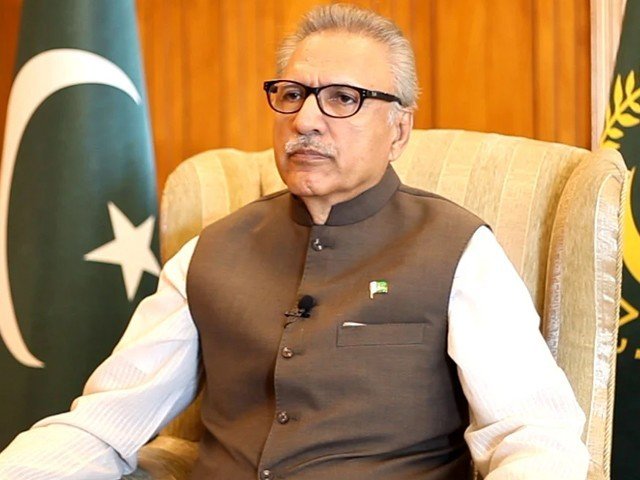Islamabad: The President sent back the Supreme Court (Practice and Procedure) Bill, 2023 to Parliament for revision under Article 75 of the Constitution.
According to the statement released by the press wing of the President’s House, the President said that in hindsight, this bill is beyond the authority of the Parliament. The bill can be challenged in court if it is legally artificial and insufficient (colourable legislation). I think it is appropriate to return this bill for reconsideration and complete scrutiny of its correctness.
The President said that the Constitution grants the Supreme Court with appellate, advisory, review and preliminary hearing powers. Article 184-3 of the proposed bill deals with preliminary jurisdiction of the court. The purpose of the proposed bill is to provide a procedure for exercising preliminary jurisdiction and appeal. This idea may be laudable but can this objective be achieved without amending the provisions of the Constitution?
Dr. Arif Alvi said that the accepted law is that the constitutional provisions cannot be amended through a general legislation. Constitution is the supreme law, the father of laws. Constitution is not a general law, but an embodiment of fundamental principles, supreme law and law above other laws. Article 191 empowers the Supreme Court to make rules to regulate judicial proceedings and procedure.
The President said that the Supreme Court Rules 1980 were made under the provisions of the Constitution which were ratified by the Constitution itself. Supreme Court Rules 1980 are being implemented since 1980. Tampering with the examined rules may amount to interfering with the internal functioning, autonomy and independence of the court. The jurisdiction, power and role of the three pillars of the state are defined by the Constitution itself.
Under Article 67 Parliament is empowered to make rules to regulate its procedure and business subject to the Constitution. Under Article 191, the Supreme Court may make rules to regulate its proceedings and procedure, subject to the Constitution and the law. Articles 67 and 191 are similar to each other. Articles 67 and 191 recognize the autonomy of both in making rules. Both Article 67 and 191 prohibit the institutions from interfering with the authority.
Article 191 was added to the constitution to fully protect the independence of the judiciary. Under Article 191, the Supreme Court was excluded from the legislative power of the Parliament. Parliament’s power to legislate is also derived from the Constitution itself. Article 70 deals with introduction and passage of bills on any matter included in the Federal Legislative List.
The President said that under Article 142A, Parliament can make laws on any matter in the federal legislative list. Under the Fourth Schedule, Parliament has the power to legislate with respect to the jurisdiction and powers of all courts except the Supreme Court. Under the Fourth Schedule, the Supreme Court is specifically excluded from the legislative power of Parliament. The Bill is essentially outside the jurisdiction of Parliament. These aspects of the Bill require due consideration.
(function(d, s, id){
var js, fjs = d.getElementsByTagName(s)[0];
if (d.getElementById(id)) {return;}
js = d.createElement(s); js.id = id;
js.src = “//connect.facebook.net/en_US/sdk.js#xfbml=1&version=v2.3&appId=770767426360150”;
fjs.parentNode.insertBefore(js, fjs);
}(document, ‘script’, ‘facebook-jssdk’));
(function(d, s, id) {
var js, fjs = d.getElementsByTagName(s)[0];
if (d.getElementById(id)) return;
js = d.createElement(s); js.id = id;
js.src = “//connect.facebook.net/en_GB/sdk.js#xfbml=1&version=v2.7”;
fjs.parentNode.insertBefore(js, fjs);
}(document, ‘script’, ‘facebook-jssdk’));


